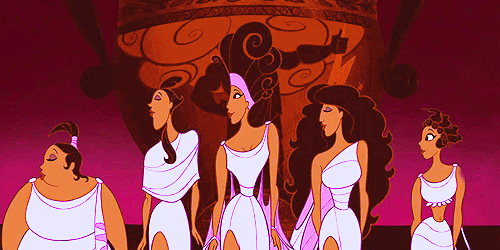Meeting the Minor Gods


The Muses are the inspirational goddess of the arts and sciences. They are the daughters of Zeus and the Titaness Mnemosyne (Titan of memory). The Muses were meant to give inspiration, knowledge, artistry, and music. The Muses resided on Mount Olympus, where they entertain the Olympians and other gods with their artistry. Other traditions have them located on either Mount Helicon or Mount Parnassus.
At first, three muses were worshipped on Mount Helicon in Boeotia:
-
Melete: Meditation
-
Mneme: Memory
-
Aoede: Song
Another three were worshipped at Delphi and their names represented the names of the strings of a lyre:
-
Nete
-
Mese
-
Hypate
Several other versions were worshipped until the Greeks finally established the nine muses in mythology as:
-
Clio: History
-
Clio’s name means ‘Celebrate’, and she is the proclaimer of history, good deeds, and achievements. She has one son, Hyacinth.
-
-
Urania: Astronomy
-
Urania’s name means ‘of the Heavens’. She is the mother of Hymenaeus, the god of marriage ceremony, inspiring feasts, and song.
-
-
Melpomene: Tragedy
-
Melpomene was originally the Muse of singing, and as such her name means ‘to Celebrate with Dance and Song’. She is the mother of several of the Sirens, the divine handmaidens of Kore.
-
-
Thalia: Comedy
-
Thalia’s name means ‘Flourishing’. She is the mother of the Corybantes, the dancers who worshipped the Phrygian goddess Cybele.
-
-
Terpsichore: Dance
-
Terpsichore’s name means “Delight of Dancing.’ She is the mother of Parthenope, as well as some of the Sirens.
-
-
Calliope: Epic Poetry
-
Calliope’s name means ‘Beautiful Voice’, she is also the goddess of eloquence. She has two sons, Orpheus and Linus, and was said to be the wisest of the Muses.
-
-
Erato: Love Poetry
-
Erato’s name means ‘Lovely’, as a love goddess she can often be seen with Cupid or Eros.
-
-
Polyhymnia: Sacred Poetry
-
Polyhymnia’s name means “the one of Many Hymns’. She is also sometimes credited as the goddess of geometry and meditation.
-
-
Euterpe: Lyric Poetry
-
Euterpe’s name meaning ‘to Bring Delight’, she also rules over the domains of joy and pleasure. Her son, Rhesus, was the King of Thrace.
-
Written by Harrick Myles